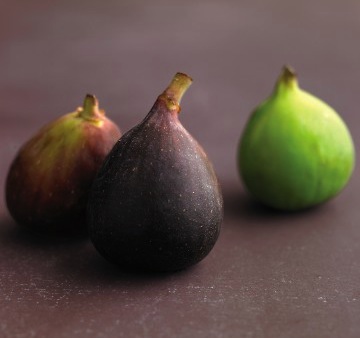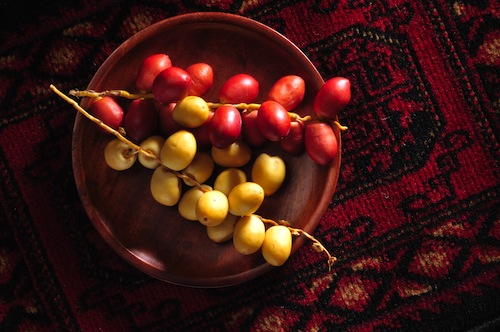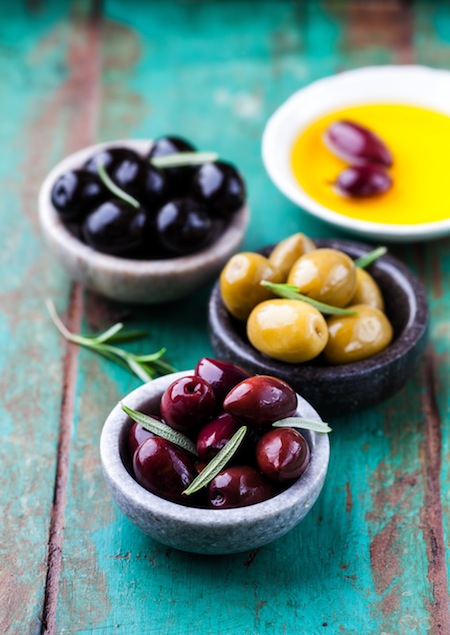Flexitarian Mediterranean Approach
Food Philosophy - Benefits of All Natural Foods and the Mediterranean Diet:
Growing up on Mediterranean cuisine, my food philosophy was influenced to be based on all natural ingredients and wholesome food. My grandparents still have a farm in the Eastern part of Turkey which thought me what a lemon should look and taste like- not perfect, maybe a bit too curvy, not the most perfect yellow, smelled like summer rain and was a bit warm to touch from the sun. Much research has been done on the tried and true benefits of Mediterranean cuisine. Check out more information below:
be based on all natural ingredients and wholesome food. My grandparents still have a farm in the Eastern part of Turkey which thought me what a lemon should look and taste like- not perfect, maybe a bit too curvy, not the most perfect yellow, smelled like summer rain and was a bit warm to touch from the sun. Much research has been done on the tried and true benefits of Mediterranean cuisine. Check out more information below:
Why Mediterranean & MidEast Cuisine?
The elements of Mediterranean and Middle Eastern cuisine and their health benefits have always been well acclaimed from doctors and nutritionists even amongst all the trend diets and eating schemes created. It has withstood the test of time! Why? Because it makes sense! Cooking with my mom and studying for my Bachelors in Food and Nutrition, I noticed that the Mediterranean and Middle Eastern cuisine is a good place to start for healthy eating because of its core focus on nutritious and all natural ingredients. Here are the key ingredients and features of the Mediterranean Diet:
Olive Oil:
The Mediterranean diet features olive oil as the primary source of fat. Olive oil provides monounsaturated fat — a type of fat that can help reduce LDL cholesterol levels when used in place of saturated or trans fats. “Extra-virgin” and “virgin” olive oils — the least processed forms — also contain the highest levels of the protective plant compounds that provide antioxidant effects. The focus of the Mediterranean diet isn’t on limiting total fat consumption, but rather to make wise choices about the types of fat you eat. The Mediterranean diet discourages saturated fats and hydrogenated oils (trans fats), both of which contribute to heart disease.
oil provides monounsaturated fat — a type of fat that can help reduce LDL cholesterol levels when used in place of saturated or trans fats. “Extra-virgin” and “virgin” olive oils — the least processed forms — also contain the highest levels of the protective plant compounds that provide antioxidant effects. The focus of the Mediterranean diet isn’t on limiting total fat consumption, but rather to make wise choices about the types of fat you eat. The Mediterranean diet discourages saturated fats and hydrogenated oils (trans fats), both of which contribute to heart disease.
Fish:
Fish is always on the menu. Mediterranean cuisine takes pride and delight in all the great nutrition the sea has to offer. Whether it is sardines, canned tuna, herring or salmon, all of these foods are healthy choices with natural anti-inflammatory omega 3.
Meat and Poultry:
Red meat is mostly eaten at events or special occasions. Remember red meat is pricey in other parts of the world so it is even more of a reason to cherish it! In fact, I still remember when my grandfather ordered a lamb slaughtered when my sister and I came to visit the family in Turkey. That was a special occasion worthy of some amazing lamb and amazing times! Poultry is eaten a few times a week. Most poultry dishes are light in condiments and this not only brings out the taste of the poultry, but keeps the dish more light and refreshing.
Grains and Breads:
Rice, bread and whole grains are a vital part the Mediterranean diet. However it is always paired fairly with vegetables and good protein. Bread without a doubt is loved all over the world and here you can choose light bread options like pita bread or just eat a piece of a fresh baguette. Also when eating plain bread, it is usually dipped in olive oil with spices. Butter and margarines, which contain saturated or trans fat, are not eaten with bread and are sparingly used.
Dairy:
The Mediterranean diet usually focuses on the good fats from oil and nuts. Dairy is used less frequently in the dishes. However, a big difference is that the Mediterranean focus is on the healthier, fermented dairy products such as yogurt, kefir and cheeses like feta. Often, different milk products from sheep and goat are used which offer greater nutritional benefits.
Vegetables in Every Dish:
The traditional Mediterranean cuisine includes a rich array of vegetables. Mediterranean people feast on tomatoes, kale, cucumbers, broccoli, peppers, capers, spinach, eggplant, mushrooms, white beans, lentils, chick peas, and more on a regular basis! Almost all the recipes incorporate vegetables in a flavorful manner. If you cook any vegetable Mediterranean style, you will see how much more quickly you will eat them.
Fruits:
Fruits are enjoyed in season. If its fig season, then figs are eaten everywhere. There is a big difference when the fruit is in season. It is more likely to come from a local source and picked ripened. This ensures maximum nutritional benefits because there is less traveling the fruit goes through and when fruit is picked ripe it has reached its peak health benefits. Fruit was meant to be picked ripe and eaten ripe. It’s just right!
Spices and Herbs:
Spices and herbs make food flavorful and are also rich in health-promoting substances. Instead of salt, it is great to explore the wide array of spices and herbs that taste great, add color and make your dishes memorable with the rich seasoning taste.
Sweeteners:
Mediterranean use natural sweeteners and complement with sweet spices in many of their desserts. Honey and molasses sweeten most of the pastries and spices such as cinnamon, anise and mastic offer great flavor. All of these offer nutritional benefits outside of the sweetness or kick they provide. Of course, aspartame and splenda are not even in the vocabulary. Everything is all au natural and all o delicious.
Wine:
Many Mediterranean people drink a glass or two of wine each night with dinner. But portions are small, generally about three ounces (a third of a small wine glass or two shot glasses). When taken in small amounts, wine has been linked to lower rates of heart disease. This is likely due to the presence of antioxidants like transresveratrol and oligomeric proanthocyanidin (OPC), which keep blood circulation healthy and prevent blood clots from forming.
Snacks:
Nuts are a big part of the healthy Mediterranean diet. Nuts are high in good fats and are eaten in moderation. Nuts are usually served right when you visit someone. You can say it is a great welcoming dish because of all the health benefits of nuts! Dried fruits are also eaten- beautiful apricots and date are rich in fiber and antioxidants. Mediterranean makes good for you easy and that’s what I love!
Portion control- Satisfy the senses:
The Mediterranean diet focuses on small portions of high-quality food. The food is so flavorful and rich, that a sensible portion is just enough to satisfy the senses. It is not about filling your plate to satisfy your eyes, but rather to satisfy your tummy. From there, you step back and give thanks, talk, take a walk, have wine, drink chai. This is all what I remember from my beautiful times abroad in the Mediterranean.
People and Sharing:
What I really love about Mediterranean cuisine is the focus on family and sharing with others. Whenever my aunt spends the day making food, it is truly a labor of love. There is no toil or sweat in the kitchen. Every ingredient is picked, every recipe is cherished and all dishes are delicious! Sharing the food you make is a great way to enrich your life. You can make a healthy dish and bring it to your office or share with an elderly who cannot cook as much. This is part of the Mediterranean life!
Walk and Strolling:
In addition to eating healthy meals, I find Mediterranean people spend a great deal of time walking and strolling. My favorite walks are to the grocery store, the baker, the butcher, or even through bazaars. Walks can be leisurely and conveniently more a part of your day. I would rather eat light and walk leisurely then eat heavy and jog profusely. It’s a quid pro quo. A healthy lifestyle does not need excessive exercise, but as much exercise as one can comfortably get is always recommended.
Cherish Food:
Food is a part of life in every part of the world. But for Mediterraneans, it is also a cause of celebration. Food symbolizes coming together, special occasions, family, friends, enjoyment, beauty, art. Food is never equated as something to be deprived of. When my mom eats something, she’ll grab three satisfiable bites and say wow that was delicious. Someone on a diet will say O no I can’t eat that, but come back three hours later to take 10 bites and say wow I am so bad and on top of that, not enjoy their food! Don’t think, don’t deprive- enjoy in moderation and take pleasure in it! I find loving food and loving yourself go hand in hand so eat a little of what you love and move on with your beautiful day…
Characteristics and Benefits:
* Rich in antioxidants
* May prevent heart and cardiovascular diseases
* May reduce the risk of cancer (such as breast and colon)
* May reduce the risk of diabetes
* May reduce Hypertension
* May protect from Alzheimer’s disease
* May reduce the risk of chronic bronchitis and emphysema
* Has anti-inflammatory properties
* May reduce blood pressure
* Shown to Improve life span and the quality of life
* It’s convenient (It’s based on easy to find ingredients)
* It’s tasty!
* It’s balanced and rich of vitamins and minerals
* It’s beautiful
For more information on the Mediterranean Diet, check out:
Mediterranean Food Alliance with Oldways Program